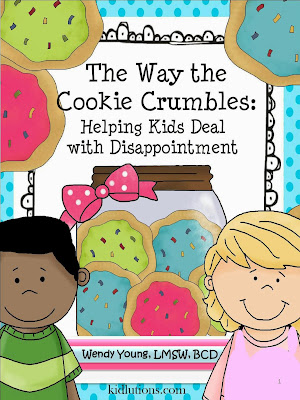Help, my child is being aggressive!
Is your child aggressive?
Aggressive behavior in the toddler through preschool years can be completely normal. The important thing to bear in mind is that when a child is exhibiting aggressive behaviors, it provides a golden opportunity to teach, support and guide them into more socially acceptable responses.
What children become aggressive?
All children can become aggressive in certain given situations. Some children become aggressive when there are stressors in their lives. And some children come to rely on aggressive behaviors. But, this does not have to be the case.
To punish or to teach?
When kids have trouble zipping zippers...we teach.
When kids have trouble tying shoes...we teach.
When kids have trouble buttoning buttons...we teach.
When kids have trouble getting along with others...we teach?
Punish?
It's a normal part of the learning curve:
Kids don't come into this world knowing how to do much of ANYTHING. We often think it normal to teach kids how to tie shoes and zip zippers, but when kids act aggressively, it’s as if it sets off a whole other chain of reactions within us. Rather than reacting to these behaviors, we need to respond in a way that helps them learn a better way to do it next time. We need to teach them social skills, as well as academic skills.
Save the labels for jelly jars:
I would hesitate to slap a label of "aggressive" on any child in the toddler through preschool years. As a matter of fact, I would hesitate to slap a label on any child of any age. Nor would I recommend labeling adults. You get the idea.
Many developmental leaps are taking place in a child's life during these early childhood years and kids just don't have the verbal skills to negotiate or problem solve. That’s where loving, caring adults come in. We CAN teach kids these skills and help them become more empathic and kind.
All things considered:
When I am consulting to early childhood programs for problems with aggressive behavior, the first thing I ask is if there is speech delay in the child who is identified as having some aggressive behaviors. Speech delays can also contribute to aggressive behavior.
If there is a speech delay, and even if there isn't, I would strongly recommend looking into "signing" with a young child, to assist him/her in becoming successful in the behavioral realm. Signing can make all of the difference in the world of a young child. Signing Families has some fabulous resources to help with teaching a young child (and parents and teachers) how to use signing to prevent such behavioral problems.
Finally, for those kids who tend to rely on aggressive and challenging behaviors, it may be that they enjoy a rather intense temperament. If this is the case, we can begin to teach them some better ways to handle their intensities.
Invest in all children:
Quite often, it isn't the kids that are failing to "behave better", rather, it is the adults who have failed to find a way to more effectively teach the child to be more successful. When we invest a little time and support in a child with challenging or aggressive behaviors, and we continue to encourage that child into more positive responses, we can help ALL children become successful. Every child is worth it…and each one deserves this from the big people in his life.
Still struggling and not sure what to do?
This book is a not to be missed book about how your own issues impact your responses and reactions to your child's behavior. Good stuff:
And peace shall echo throughout the land!











Comments
Thanks for stopping by! It is interesting that there are those that think such techniques promote violence...but I am not in that camp. I concur with you 100%...and it has been my chief aim to help kids find socially appropriate ways to manage BIG mad feelings through play/art activities. I know we are in good company with that. I also encourage teachers and parents to teach social-emotional skills that prevent frustration and get needs met before frustration hits the roof!
Wendy =)
Wendy =)
Thanks for dropping by! It's an interesting thought you raise...that it can be harder when they are younger than older. Certainly, they don't grasp as much cognitively and their emotional brains are much larger than their cognitive brains...and...hmmmm...I think you've inspired a whole new post down the road!
Wendy =)
Online Parenting Class
Katie Hurley, LCSW
www.practicalkatie.com
Wendy =)
Thank YOU for sharing those WONDERFUL "big feelings" activities! LOVE them! You get that E-motion is ENERGY in Motion! We must first help kids to release that before we can do anything else. Lucky is the child who was gifted with parents who "get it", who strive for understanding and for pulling the child towards greater success! Your girls are blessed! It amazes me that when we teach kids these fab kinds of strategies to "de-escalate", how they remember them YEARS later! I've seen it in action ;-)...and having lived with intensity under my own roof, have a very healthy appreciation for it, as well as for the parents who help guide their children towards managing it. I've seen BEAUTIFUL things happen! Thanks again for sharing!
Wendy =)
Wendy =)